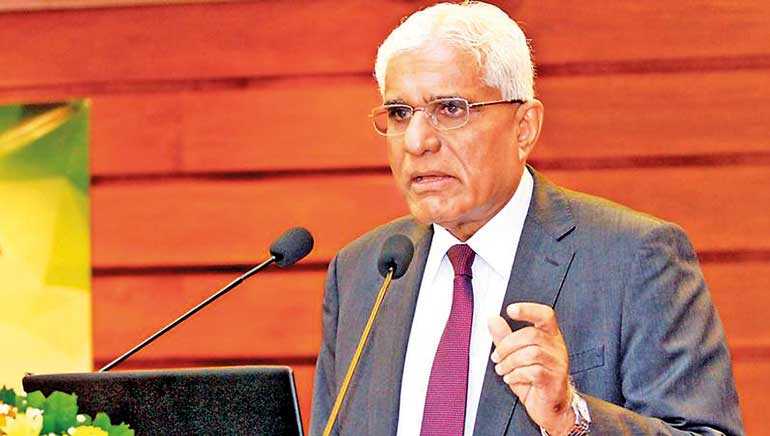Tuesday Feb 17, 2026
Tuesday Feb 17, 2026
Tuesday, 23 July 2019 00:00 - - {{hitsCtrl.values.hits}}

The Monetary Law Act is proposed to be amended. The so-called objective is to make the Central Bank more independent. The Central Bank Governor has said on record at a recent forum that the amendment is necessary to put a stop to money printing initiated by the Government.
Developed world uses money printing
The question arises whether the famous Quantitative Easing (QE) programs of the developed world in the aftermath of the global financial crisis in 2009 also work out to money printing. Basically what happened was, almost all the central banks of the developed world started purchasing government bonds and other assets to prevent an economic crisis and revive the respective economies. From the look of it, it certainly was a case of money printing. Therefore it was a great tool that was available at that time to prevent a major crisis.
In that light, preventing the possibility of adhering to such measures, could be seen as unwise.
Why money printing could be important for Sri Lanka
As this column has pointed out, Sri Lanka is in dire need of a determined investment drive by the Government to trigger the set-up of badly-needed industries. The financing of that investment drive to some extent would have to be done through the assistance of the Central Bank.
As this column has pointed out before, it’s the foreign borrowings that is problematic and not exactly the Rupee debt. Hence, Central Bank printing money is not catastrophic by any means, at least not as much as the more serious problems of low economic growth and foreign borrowings. 
Theoretical solutions don’t work for practical problems
Theoretical concepts such as “independence of Central Bank” may not achieve the desired results for the real practical problem of low economic growth faced by Sri Lanka. The Central Bank Governor at the same forum has mentioned that low growth is a problem. But as solutions what is proposed are “strong macroeconomic fundamentals” – i.e., low inflation, low Government budget deficits, low interest rates, properly valued currency etc.
However, this column has continuously argued that it’s not such macroeconomic variables or the other vague reforms such as labour, land markets, investment and trade promotion, are the solution for the low growth problem.
Skilled labour, technology more relevant for investors
The desirable investors seek promising business models and high growth potential but not necessarily great balance sheets. Those who look at clean balance sheets are the lenders who are keener about recovering their funds rather than reaping profits from a high growth, profitable venture. Therefore the focus should be to achieve sustainable, high economic growth and not to worry too much about near term inflation, budget deficits and other less problematic economic factors.
On the other hand, the desired investors would firstly check whether the required basic infrastructure is in place for a compelling business model (such as skilled labour, technology, etc.). That has to be provided by the Government through a determined investment drive. Such focus from Government would further lure the desired investors – both foreign and domestic private sector. Steps such as investment and trade promotion are secondary factors and not the primary factors needed for growth and attract investors.
Misuse of money printing
The money printing becomes a problem, if it’s not used for the right purpose. As clearly mentioned above, the need is to kick start a determined investment drive to trigger a revival in industries.
But the past experiences show that Government budgets have been expanded to finance short-term consumption purposes such as increase Government sector salaries and so on. In other words, vote buying tactics just prior to elections. Such measures, undoubtedly would negatively affect long-term growth prospects.
The need for control
Therefore a need certainly exists to curtail Government expenditure on reckless and irresponsible measures. But the answer is not to abandon a tool altogether simply because it has been misused.
The answer is to bring in the controls so that it is only used for the right purposes. That should be the objective of any amendment to the Monetary Law Act.
(The writers can be contacted via [email protected].)